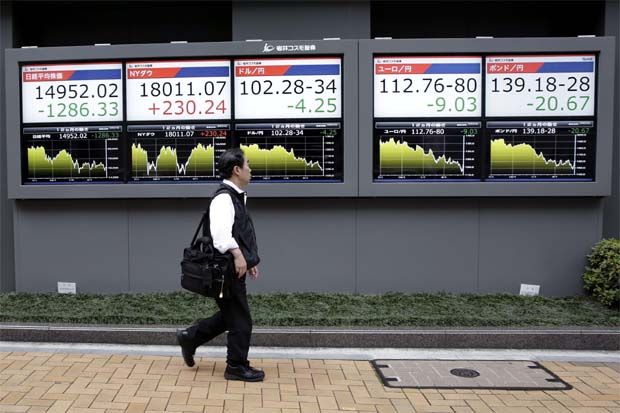SEOUL: Asian stock markets were mostly firm on Thursday and oil prices were steady, despite a second straight day of losses on Wall Street overnight. But analysts said it was too early to say risk sentiment was back after a day of heavy losses in Asia. Other than on-going worries about the prospect of the U.S. tax reform plan and the pace of the Federal Reserve’s rate hike, there were little market-moving headlines.
KEEPING SCORE: Japan’s Nikkei 225 rose 0.8 percent to 22,210.45 and South Korea’s Kospi advanced 0.5 percent to 2,531.74. Hong Kong’s Hang Seng index gained 0.4 percent to 28,979.81. Australia’s S&P/ASX 200 added 0.2 percent to 5,943.50. But China’s Shanghai Composite Index fell 0.2 percent to 3,395.46. Stocks in Southeast Asia were mostly higher.
FED WATCH: Analysts said the U.S. retail sales data and consumer prices figures gave a green light to the Fed to raise rates next month. U.S. retail sales rose 0.2 percent in October, a healthy rate, and consumer prices rose 0.1 percent last month.
WALL STREET: U.S. stock markets finished lower on Wednesday, led by a decline in tech stocks. The Standard & Poor’s 500 index fell 0.6 percent to 2,564.62. The Dow Jones industrial average lost 0.6 percent to 23,271.28 and the Nasdaq composite slid 0.5 percent to 6,706.21. The Russell 2000 index of smaller-company stocks gave up 0.5 percent to 1,464.09.
OIL: Crude oil prices eked out a tiny gain. Benchmark U.S. crude added 1 cent to $55.34 per barrel in electronic trading on the New York Mercantile Exchange. It fell 37 cents, or 0.7 percent, to settle at $55.33 per barrel on Wednesday. Brent crude, used to price international oils, gained 10 cents to $61.97 per barrel in London. It lost 34 cents, or 0.5 percent, to close at $61.87 a barrel on Wednesday.
CURRENCIES: The dollar rose to 112.96 yen from 112.84 yen while the euro weakened to $1.1781 from $1.1790.




